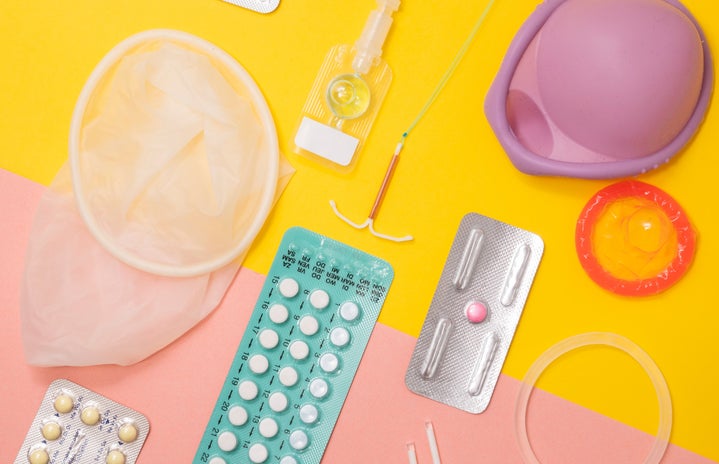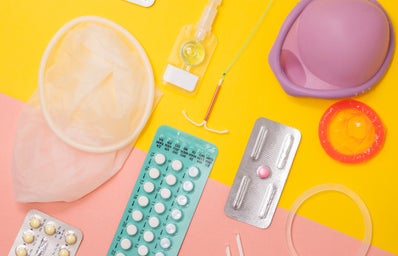On November 13 at UCSB’s SRB, Dr. Sophia Yen, M.D., M.P.H, adolescent physician and Chief Medical Officer (CMO) of Pandia Health gave a her annual “Vagina Talks” via Zoom regarding reproductive health and birth control methods in light of the 2022 overturning of Roe v. Wade. And, girl, I was appalled by how little I knew about my vagina and reproductive health!
Dr. Yen started by explaining how 10-45% of young women attribute school absences to dysmenorrhea, or severe menstrual cramps. According to Dr. Yen, the only way to get rid of dysmenorrhea and other period ailments (arthritis, constipation, anemia) is by taking birth control or another form of reproductive hormone therapy (IUD, ring, implant).
She then highlighted how abortion access is continuing to be threatened, citing an April 2023 Texas case alleging mifepristone (pregnancy blocker in the abortion pill) was wrongfully approved by the FDA. The case eventually appealed to the Supreme Court, who have still yet to rule on mifepristone’s availability. For the record, mifepristone is safer (<0.001% mortality) than Viagra, a drug that induces blood flow to the penis (0.005% mortality). I don’t want to point fingers, but that seems pretty misogynistic to me — efforts to formally ban Viagra (a necessary drug) have been scant (as they should be), yet efforts to ban mifepristone and other reproductive drugs meant for those with uteruses and vaginas (also necessary drugs) are being hurled left and right.
Continuing with ways to maintain safety and access to reproductive and family-planing care in light of anti-abortion legislation, Dr. Yen posited deleting period apps which track reproductive data, being wary of “pregnancy centers,” or anti-abortion organizations posing as Planned Parenthood-adjacents, and knowing all birth control methods available to you (there are a TON). Dr. Yen’s company, Pandia Health, specializes in TeleHealth and birth control prescription deliveries.
I had absolutely no idea there were over 12 birth control methods, both hormonal and physical including the implant, vasectomy, IUD with hormone, copper IUD, tubal ligation (AKA getting “your tubes tied”), shot, ring, patch, pill, condoms, withdrawal (AKA the “pull-out method”), and the Fertility Awareness Method (FAM), or only using condoms during ovulation or other fertile days.
The above birth control methods don’t include emergency contraception, most notably Plan B (generic alternatives include After Pill, MyWay, Next Choice, Julie). Unfortunately, Plan B and its alternatives become less effective as BMI increases. Plan B may work less effectively in individuals with a weight over 155-165 pounds. However, the Ella morning-after pill is a prescription-only form of emergency contraception that maintains its efficacy in individuals up to 195 pounds (Planned Parenthood Michigan). There is still work to be done in developing emergency contraception pills that work for and is easily accessible to everyone — not everyone can get a prescription for Ella, and not everyone weighs at or below 195 pounds. Moreover, emergency contraception is incredibly expensive without insurance, furthering inaccessibility.
That being said, Dr. Yen mentioned that the hormonal and copper IUD can also act as emergency contraception for everyone; appointments for IUD insertion are easy to book, and reproductive care providers can perform the insertion ASAP as IUD insertion for emergency contraceptive purposes is an emergency. But again, it can be pricey without health insurance — and in general, incredibly painful!
If you need prescription or non-pill emergency contraceptives for any reason or have any questions, please speak to a trained and licensed healthcare provider who you trust.
After Vagina Talks, I had a lot to think about concerning my relationship with my vagina. I’ve never really thought or spoken about my reproductive health, just because sex and reproductive health for people with vaginas is so stigmatized — I haven’t even thought once about my period (besides the usual uh-oh, time to change out my tampon) or my relationship with sex in any depth. It was also incredibly refreshing to hear an Asian-American physician speak on vagina health as an Asian-American myself, since Asian-American vaginal health is rarely discussed and often fetishized. As I reckon with my own vaginal health, I have to navigate through a multitude of obstacles as a woman of color and first-generation American.
Vagina Talks cemented my passion for medicine and plans to become an OB/GYN: I felt so inspired by the smiles and intent looks, girls whipping out their cases of birth control pills and reading the fine print. I can only hope to do the same in the future.
For those of you that didn’t attend Vagina Talks, stay tuned for more details next year! In the meantime, here are some ways you can take charge of and celebrate your reproductive health: at UCSB, the Resource Center on Gender and Sexual Diversity and Women’s Center in the SRB offer free penile and vaginal condoms, as well as lube and dental dams. Planned Parenthood Generation Action Club (PPGA) at UCSB also has condoms, lube, dental dams, and a new shipment of (literally a bunch) of Julie brand emergency contraception, all for free — to anonymously receive any of these items, shoot PPGA a DM on Instagram. And in general, know that you come first—not anyone’s expectations or norms; being healthy and loving yourself (and your vagina!) isn’t something to be ashamed of.

